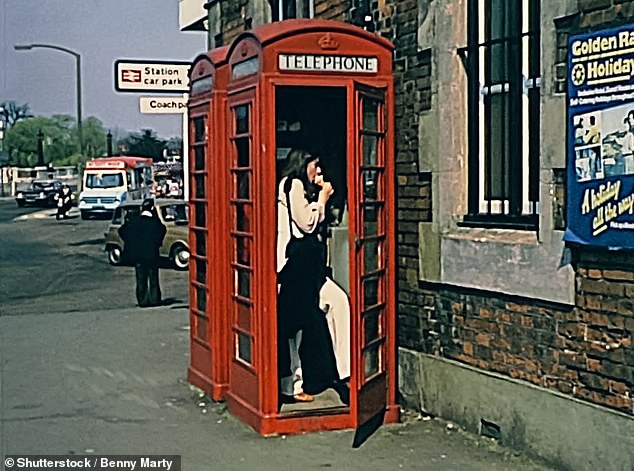In the 1970s I took out a whole of life insurance policy, to make sure my young family would be provided for if the worst happened.
My accountant at the time advised me to put it in a trust, as he said this would stop my children getting any money from it until they were 25.
The accountant and my wife were named as the trustees.
Today, we are in our 70s and my wife is unwell. I’d like to surrender the policy, which I think is now worth about £80,000.
However, the insurer – a major household name – says it can’t cash it out without the consent of my old accountant from more than 50 years ago because he is a trustee.
I only met him a few times, have no contact details for him and don’t even know if he is alive or dead. What can I do? S.S, Cambridgeshire

Back in the day: This reader’s insurance policy was taken out as long ago as the 1970s
Helen Crane, This is Money’s consumer champion, replies: You took out this policy in your late 20s, with the aim of giving your wife and young children a financial cushion in the event of your death.
Whole of life insurance policies pay out a lump sum to the named beneficiaries when the holder dies, as long as they have kept up with their premiums.
They are often used as a way to pass on an inheritance, or ensure that family members can cover costs such as a funeral.
If the holder feels they no longer need the policy, they can ‘surrender’ it and be paid a cash lump sum – though it is normally lower what the policy would have paid out after their death.
This is what you wanted to do, as your children were grown up, your wife was ill and it made more sense to have the money now to help with her care.
It is not uncommon for life insurance policies to be placed in trust. This effectively appoints another person to make sure it is managed according to the deceased’s wishes.
For example, they could ensure the funds are only released to children when they reach a certain age.
What definitely is uncommon is for your accountant to list himself as one of the trustees. You went along with this as a young man on his advice, and did not understand the full implications until recently.
Rightly, the insurer refused to cash out the policy without the express consent of both the trustees. A trust is a legal arrangement and giving you the money would contravene it, getting the firm into hot water.
But this left you in a pickle. You made substantial efforts to find this old accountant, including contacting the firm he used to work for.
You also got in touch with the General Register Office, which issues death certificates, in case he had passed away.
The insurer had told you that if the accountant had died, you may then be able to access the trust. However, none of this got you any answers.
I also did some searches for him after you got in touch, including on the Financial Conduct Authority register and on Companies House, but couldn’t find him.
I asked Heather Rogers, founder of Aston Accountancy and This is Money’s tax columnist, what her advice would be for someone in this unusual situation.
‘If this happens, particularly if the trust is discretionary where the trustees have discretion as to who receives income or capital from the trust, matters can become difficult to resolve,’ she said.
You were not sure if this was the case for your trust.
Rogers continued: ‘There is something called the Trust Act 1925 which does provide assistance in cases where a trustee may die, or no longer have capacity.
‘However, if the trustee cannot be proven to be either dead or without capacity and is simply missing, then regretfully, court intervention may be needed to remove the missing trustee and replace with an alternative.
‘The best way forward is for the reader to seek legal advice from a trust solicitor as to next steps.’
It looked as if you may have to go down the legal route to get hold of your £80,000.
However, you contacted me a couple of weeks later to say you had finally been successful. I was intrigued to know how you did it.
You told me you went back to Companies House website.
Even though this person wasn’t himself listed as a company officer, you decided to call every accounting firm listed in and around the town where he worked all those years ago.
If you couldn’t find him, you hoped to track down someone who could.
Eventually, you found a former colleague who was able to give you his contact details.
You finally spoke to him, and he told you he didn’t remember signing anything – and wasn’t aware how a trust worked.
Not a good look for a former accountant, and potentially a case of professional negligence.
However, he willingly agreed to do what was needed to allow you to access the money in the insurance policy – and you were happy to leave it at that.
I am glad you finally got the payout, and I hope this serves as a reminder to always make sure you understand what you’re agreeing to when it comes to finances.
